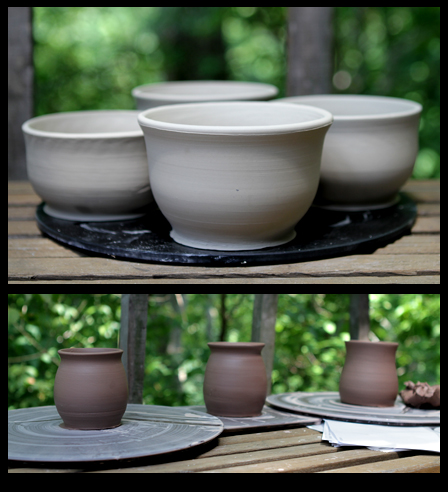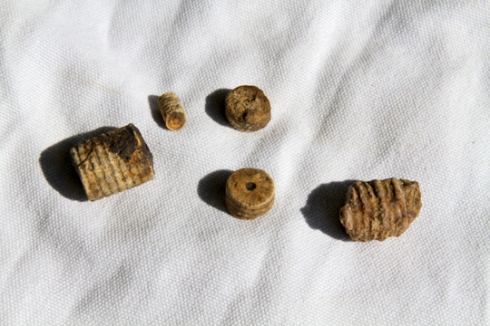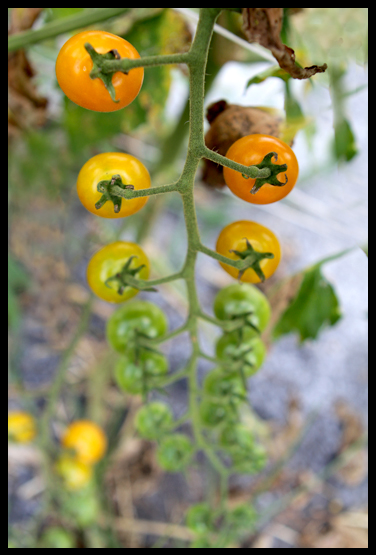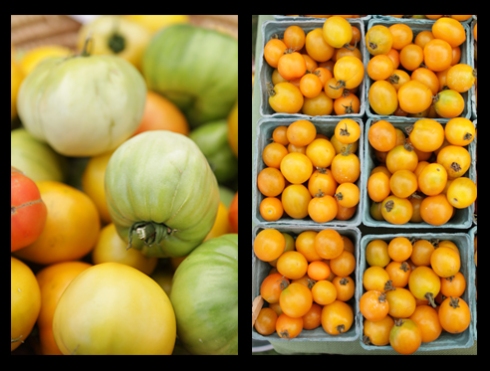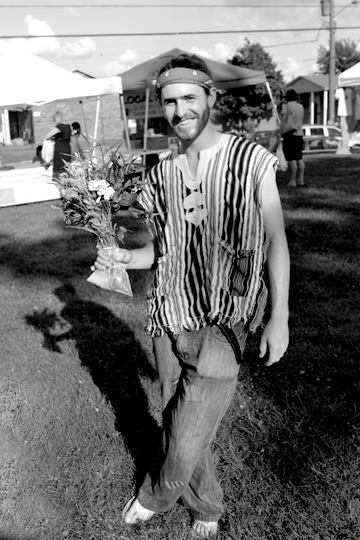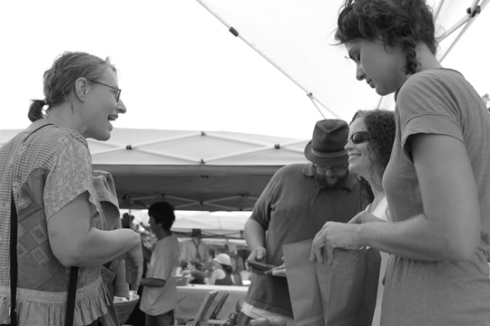The drive to Kentucky had been a strenuous one. We’d opted to traverse Smoky Mountain National Park instead of the smooth and steady stream of the interstate. The scenic merits of the park would far outweigh the burden of a few extra travel hours, we figured. The notion went to hell in a tourist town directly outside of the park entrance. The place was teeming with vacationers. It seemed as though there were more cars than trees. The scenic cruise turned into a rush-hour crawl that turned Doug’s mood sour.
“This isn’t what a national park is supposed to be like. This place is completely overrun.” He said with irritation.
“We’re here, too, aren’t we? We’re part of it.” I responded.
That only made him more annoyed. Departing the park didn’t give any relief, either. Pigeon Forge was on the other side, and it was also saturated with tourists. Pigeon Forge is like the Myrtle Beach of the mountains. Bright fluorescent lights and themed hotels line the street. There are family fun parks and laser tag centers. Mini golf and go karts. There’s even a building that was made to look like a Roman temple turned upside down! But… we weren’t amused. The trip had already taken 7 hours. To add the final, brilliant touch, the temperature sky-rocketed as soon as we hit lower altitude. Heat index included, the temperature was easily 105. We speculated how we would work in such stifling conditions.
“Do you think there will be air conditioning at this next place?” I asked.
Doug chuckled at the bold consideration. “No, definitely not.”
“How about hot water and good water pressure?”
“Maybe good pressure, but probably not hot water. I don’t think I’ll want it anyway with this heat.”
“Compost toilet or plumbing?”
“Compost.”
“No, I’ll bet the toilet flushes. I’ll bet there’s air conditioning, too.”
“No way.”
“Yeah, it’ll be the kind you stick in the window. They have to have something. How could anyone stand this heat?”
The ride continued for another 3 hours. We were really close to our destination. Then we got lost. We were only five minutes away from the farm at that point, but we took a wrong turn and added another 30 minutes on to the trip. By the time we finally rolled into Spring Green Farm, it was dark, we were tired, cranky, and hungry. And it was still hot.
I parked the car beside a beautiful, southern plantation-style home. The yard was trimmed and well-maintained. There was a processing station beside the driveway that looked organized and clean. A little stone pathway led to a lovely porch with wicker chairs. Plenty of lights were on, and I could clearly see a large kitchen with a wrap-around counter and stools through the window.
“Wow this place is nice,” I said, “Do you think we’re staying here?”
“Nah, you see that barn back there? That’s probably where we’ll be.” Doug replied, pointing towards a large Dutch barn with an arched roof. It actually looked nearly as inviting as the stately mansion did. We walked to the door and knocked.
A boy of about 20 years old appeared in the kitchen and came to the door. He was wearing a plaid button down shirt with a bright yellow peace sign pin over his right breast. He opened the door in one big motion, and a rush of cold air nearly knocked me off my feet. Air conditioning. Heaven.
“Hey guys! Y’all smoke?” He asked excitedly. Doug answered that he did but I didn’t as we stepped inside. The boy clapped his hands and threw his head back.
“I knew it!!! They smoke guys!” he called into the next room. He quickly turned back to us.
“So where have ya’ll been? What kind of music do you listen to?”
I began to wonder if there was something wrong with this guy.
“Um, we just came from North Carolina and…”
“Were they bio-dynamic?” he interrupted.
“Bia what?” I asked.
“I didn’t catch your name.” Doug added.
“Didja eat? Are ya hungry? What kind of music do you like??? Do you know about Tibetan Buddhism?”
The long drive and the heat were enough to put me off to exploring a religious conversation with a boy who couldn’t decide what he wanted to talk about the most. I let Doug take over the conversation and wandered into the dining room. There was a long wooden table in the center and large paintings on the walls. Glass decorations sat on display tables set randomly about the room. At the table were three young people, two boys and a girl. They all looked sleepy. I introduced myself and took a seat. At the head of the table was Waldo. He was thirty years old, heavy set, had full facial hair, and glasses. He was quiet, and spent a lot of time looking down at his empty dinner plate. Next to him was Jake. He was 19 years old, and equally quiet. He had dark hair and a baby face. To my right was Holly, the only girl in the group. She was 23, tall and thin, with short dark hair and a pretty face. The group told me the boy who had opened the door was named Horace.
“So where are the owners?” I asked the lethargic group.
“They don’t live here,” Holly said, “this house is just for the interns.”
Interns? It seemed a funny thing to call volunteers.
“Wait, what? This whole house?” I asked in disbelief.
“Yeah, the whole thing.” Waldo said, looking up only momentarily.
“So… does everyone have their own room?” I continued.
“Yep.” was the collective response.
I learned that in addition to having adequate personal space, this place came with internet access, 3 meals a day prepared by a lady named Mona, two showers with hot water, laundry facilities, and free time. A lot of free time, apparently.
“We don’t work real hard round here,” Horace said as he took his seat, “There’s not much to do. Put in a few hours a work, then smoke a bow’ and drink some co’beer. You guys like beer?”
“Sure.” I said.
“Oh, then you’re gonna like it here. I got drunk the other night and the house beat me up.”
Holly turned to me and said softly, “I just wake up around 8, and wait for someone to tell me what to do. There really wasn’t much over the weekend, but maybe it’ll pick up tomorrow.”
After dinner, Holly and I made some tea together, sat down in the living room, and had a little chat about the farm. The house has been around since before the civil war and was once a tobacco plantation. Currently, the farm was a family-run gig, and specialized in ‘mater production. I learned quickly that the word “tomato” simply does not exist in the south. Only ‘maters. Also, the family was Buddhist. Every Sunday they went to a meditation, and we’re all invited. Would I be interested? Sure, why not? They have a full library with books on yoga and Eastern philosophy if I wanted to take a look. I was eager to peruse the shelves. We observed the sheer absurdity of farm volunteers living in a mansion. It would spoil us for sure, and we wouldn’t be able to handle the barns that were sure to come. We laughed about it, but added in all seriousness that we wouldn’t mind living in barns and bathing in lakes or rivers. It’s sort of why we chose to have this experience. How could a place like this actually exist?
Then she told me to watch out for Horace. He didn’t really understand or respect boundaries. He follows people, listens in on conversations, and sings really, really loud.
“I’m so glad you’re here.” She said with a big smile, “I didn’t think I was going to make it the whole two weeks. It was just me and those boys all weekend. I’m so glad there’s another girl here.”
Horace walked into the room with a guitar in hand. He plopped himself down and looked at me and said, “You wanna hear a song?”
“Yeah, sure. Let’s hear it.”
Within 10 seconds a booming voice filled the room and resonated in the walls as well as my eardrums. It wasn’t a bad voice by any means, just loud. If it were in a stereo, the speakers would be giving out, crackling and unable to support the sound properly. My head felt the same way. I looked at Holly and she looked back at me with a blank stare that seemed to say, “I’ve been down this road 100 times already. Here we go again.”
It aint easy takin’ it easy
Sometimes I wonder why life is hard
It aint easy bein’ free
It aint easy bein’ free
It aint easy bein’ who you wanna be
No, it aint easy bein free.
When he was finished playing the song he stopped for a moment and looked out into space. He hovered in deep thought (or maybe complete lack thereof) for a moment and then snapped back into his usual high energy.
“Wanna hear another one?”
“That last one was really good.” I commented. I wasn’t being completely insincere. It really wasn’t that bad. I had enjoyed it, even though I wished Horace’s voice came with a volume knob.
“Let’s see if you say that after the 50th time you hear it.” Holly commented without emotion.
Then without any further ado, Horace broke into a rendition of “Simple Man” by Lynyrd Skynyrd. His voice was at full throttle. He should have been on a stage. It really wasn’t half bad. The problem was that he had complete disregard of his surroundings. Holly put her face in her hand and drew a deep sigh. His voice was at a near scream. Why not? That’s how the song goes after all, right?
“You know Pink Floyd?!” He asked as soon as he had finished the song.
My patience began to wane.
“Yes. I’ll be right back.” I said and then slipped into the next room, which was the Eastern philosophy library. I knew I had to act quickly before my absence was felt. Quickly scanning the titles, my eye was caught by a book about Kundalini yoga. I knew a bit about it. Through disciplined and consistent meditation, a practitioner would eventually feel sacred energy being unlocked from the base of the spine, and, uncoiling like a serpent, it would work its way to the crown of the head and show the practitioner the true nature of the universe. I was intrigued. All you needed was some time each day to set aside and be still. Quiet. At peace. I took the book from the shelf and slipped it under my arm.
“MOTHER DO YOU THINK THEY’LL LIKE THIS SONG!?!?!” Horace wailed.
I’m not sure what I thought I was doing with that serene book as I tip-toed through the living room, past the concert, and towards the freedom of the steps.


